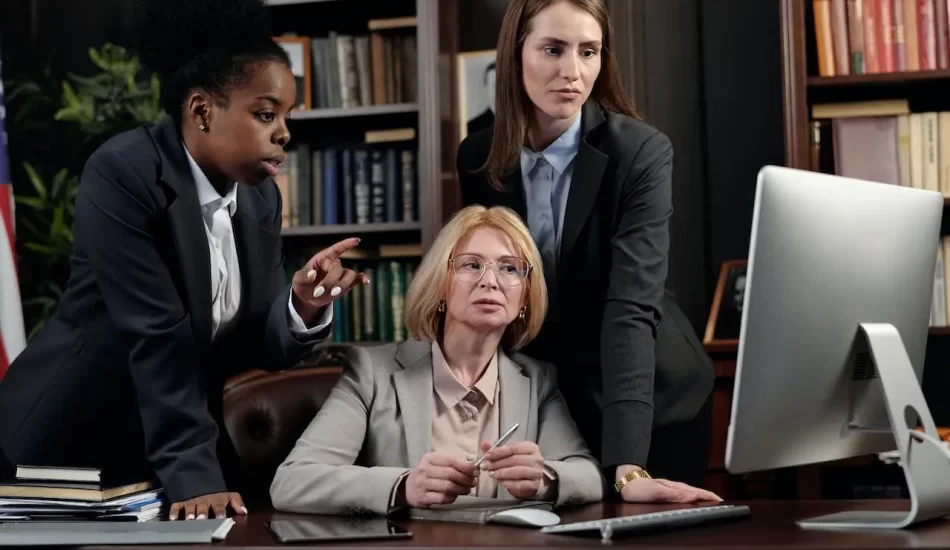If you’ve ever wondered, is a DWI a criminal conviction?—the short answer is yes, but the full story is much more layered than a simple yes or no. A Driving While Intoxicated (DWI) charge doesn’t just come with a court date and a fine; it can leave a permanent mark on your criminal record and ripple through your personal and professional life for years. And if you’re in Texas, that mark could follow you longer than you might expect.
This article will break down everything you need to know about DWI as a criminal conviction: from the legal classification and consequences to real-world scenarios where this charge has altered someone’s path. Whether you’re facing your first DWI or just doing your homework, you’ll walk away with a clear understanding of what’s really at stake.

What Exactly Is a DWI?
At its core, a DWI—Driving While Intoxicated—refers to operating a motor vehicle while impaired by alcohol or drugs. In Texas and most other states, the legal limit for Blood Alcohol Concentration (BAC) is 0.08%. If you’re pulled over and your BAC is at or above that level, you can be arrested and charged with DWI.
But is a DWI a criminal conviction under Texas law? Absolutely. Even a first-time offense is treated as a criminal matter—not just a traffic violation. It’s not something that gets wiped away with defensive driving school or a few community service hours.
In fact, a DWI conviction becomes part of your permanent criminal record, which is why it’s essential to understand how deeply it can affect your life. While it may seem like a simple mistake after a night out, the legal system doesn’t see it that way.
Misdemeanor vs. Felony DWI: What’s the Difference?
One of the most important distinctions in understanding whether a DWI is a criminal conviction is knowing the difference between a misdemeanor and a felony DWI.
Misdemeanor DWI
Most first-timeDWI offenses are classified as Class B misdemeanors in Texas. This includes:
- BAC of 0.08% or higher
- No accidents or injuries
- No minors in the vehicle
Penalties for a misdemeanor DWI can include:
- Up to 180 days in jail
- Fines up to $2,000
- License suspension
- Mandatory DWI education classes
Even though it’s a misdemeanor, it’s still a criminal conviction. That means it shows up on background checks and stays on your criminal record unless expunged or sealed.
Felony DWI
A DWI becomes a felony if:
- It’s your third or subsequent DWI offense
- There was a child passenger in the vehicle
- Someone was injured or killed
Felony DWI penalties are much steeper and can include:
- 2 to 10 years in prison
- Fines up to $10,000
- Lengthy license suspension
- Probation with strict conditions

And yes, afelony DWI is unquestionably a criminal conviction—one that can strip away your civil rights, like the right to vote or own a firearm, depending on the jurisdiction.
Real-Life Impact of a DWI Criminal Conviction
Let’s put this into perspective. Take Jason, a 29-year-old marketing manager in Houston. After attending a friend’s birthday party, he made the unfortunate choice to drive home. Pulled over for swerving, his BAC tested at 0.10%. It was his first offense. The charge? Class B misdemeanor DWI.
Even though Jason avoided jail time through a plea deal, he now has a criminal conviction on his record. When he later applied for a job at a major firm, the employer ran a background check. Despite his qualifications, Jason was passed over due to his record.
That’s the kind of long-term effect a DWI conviction can have—even if it’s “just a misdemeanor.” The stigma and consequences go far beyond the courtroom.
Is a DWI Always Considered a Criminal Conviction?
Here’s where it gets tricky. While a DWI is typically a criminal conviction, there are rare exceptions and alternative outcomes.
Deferred Adjudication
In some cases, a judge might grant deferred adjudication, which allows a person to plead guilty or no contest without a conviction being formally entered—but only if the court agrees and the law permits it. In Texas, deferred adjudication is not commonly granted for DWI cases, but some exceptions apply for certain charges like obstruction or lesser alcohol-related offenses.
However, even with deferred adjudication, the arrest still shows up on your criminal record. So while it might spare you from a technical conviction, it doesn’t erase the incident.
Expungement or Nondisclosure
You may be wondering, “Can I get a DWI removed from my record?” Unfortunately, in Texas, most DWI convictions cannot be expunged. However, you might qualify for an Order of Nondisclosure, which seals the record from public view.
But sealing a record doesn’t erase it. Government agencies and some employers (like schools or hospitals) may still have access. So in most real-world contexts, a DWI is treated as a criminal conviction, no matter how it’s legally handled behind the scenes.
How Long Does a DWI Stay on Your Record?
Another frequent question is, “How long does a DWI stick around?” In Texas, a DWI conviction stays on your record for life unless you successfully petition for nondisclosure. That means anyone running a background check—employers, landlords, schools—can see that conviction unless it’s been sealed.
This is why understanding the full consequences of a DWI criminal conviction is crucial. It’s not just a one-time issue. It follows you long after the fines are paid and the probation ends.
Criminal Conviction vs. Civil Penalty: Don’t Confuse the Two
Many people confuse a criminal conviction with a civil penalty, and it’s an important distinction. Civil penalties are typically financial and don’t result in a criminal record. Think of parking tickets or speeding infractions.
But a DWI is not a civil penalty. Even administrative consequences like license suspension by the Department of Public Safety (DPS) are separate from the criminal consequences handled in court.
When you’re charged with DWI, you’re entering the criminal justice system. You’ll face prosecution, sentencing, and potentially jail time—all signs of a criminal conviction. There’s nothing civil about it.
How a DWI Criminal Conviction Affects Employment
Let’s be honest—many employers don’t look kindly on criminal records. Even if your DWI didn’t involve injury or reckless behavior, it still raises red flags for potential employers, especially in roles involving driving, public safety, or corporate responsibility.
Background Checks
Companies often perform background checks during hiring, and a DWI criminal conviction will appear unless sealed. Some employers have zero-tolerance policies for criminal records, while others may ask for an explanation or weigh the offense’s relevance to the job.
Professional Licenses
Doctors, nurses, teachers, and even real estate agents risk losing or being denied professional licenses due to a DWI conviction. Regulatory boards often consider DWI convictions as evidence of poor judgment or substance issues.
Security Clearance
If you work for the government or a defense contractor, a DWI conviction can jeopardize your security clearance. These clearances require trust and stability—two qualities that a DWI conviction may cast doubt on.
Insurance Rates Skyrocket After a DWI
Here’s another under-the-radar consequence: auto insurance premiums. Once you’re convicted of a DWI, your insurer may:
- Drop you as a client
- Increase your premiums by hundreds—or even thousands—of dollars
- Require you to file anSR-22 form (a certificate of financial responsibility)
This financial burden adds up fast. Over five years, you could pay an extra $10,000 or more in insurance alone—all because of a DWI criminal conviction.
Can You Travel with a DWI Conviction?
International travel gets more complicated when you have a criminal record. Some countries—like Canada—have strict entry rules for people with DWI criminal convictions. Even a single offense can result in being denied entry or needing special permission.
So if you’ve got a travel bug and a DWI on your record, prepare for complications. That one mistake could limit your ability to work or vacation abroad.
What You Should Do If You’re Facing a DWI Charge
If you’re currently facing a DWI charge and wondering if it will become a criminal conviction, here’s your action plan:
- Hire an experienced DWI attorney. They know the system and can sometimes negotiate lesser charges or alternative sentencing.
- Understand the full scope of penalties. Don’t assume it’s just a fine—think long term.
- Explore diversion programs or deferred adjudication options. While rare, they might offer a path to avoid a conviction.
- Don’t skip court dates or paperwork deadlines. That only makes things worse and may fast-track your conviction.
A DWI charge isn’t the end of the road, but ignoring it or taking it lightly could cost you much more than you realize.
The Long-Term Cost of a DWI Criminal Conviction
Let’s tally it up. Beyond the court fines, legal fees, and increased insurance, a DWI conviction can cost you:
- Career opportunities
- Professional licenses
- Travel freedom
- Financial stability
- Personal relationships
It’s not just about the short-term penalties—it’s about protecting your future. That’s why you need to treat any DWI charge as a serious legal matter.

Final Thoughts: Why You Should Care About the Criminal Side of DWI
So, back to our original question: Is a DWI a criminal conviction? Yes—most definitely. Whether it’s your first offense or a repeat charge, a DWI becomes a part of your permanent criminal record unless you take specific, often difficult legal steps to remove or seal it.
In Texas, and in most jurisdictions across the U.S., a DWI is more than a traffic mistake—it’s a criminal offense that follows you for years. From employment and insurance to travel and public trust, the consequences are wide-reaching.
If you or someone you love is facing a DWI, don’t wait to get informed. The choices you make today can impact your record for decades.

